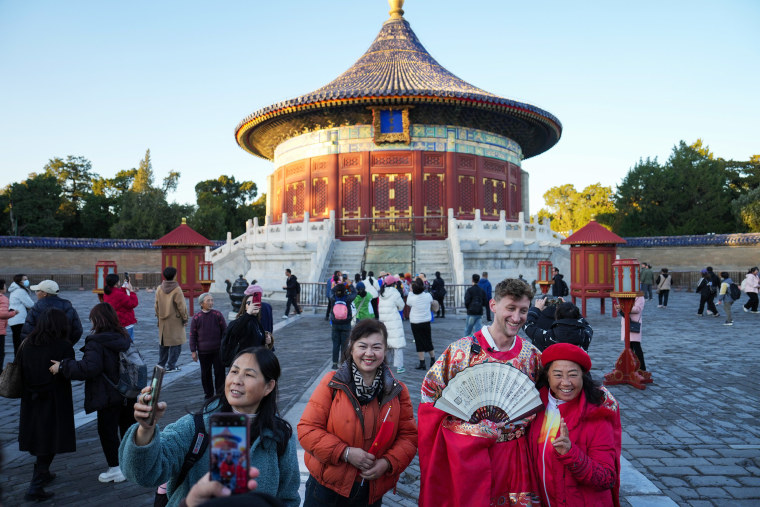China said Tuesday it was expanding its visa-free transit policy, allowing Americans and other eligible foreign travelers to stay in parts of the country as long as 240 hours, or 10 days, as officials try to attract more overseas visitors.
China’s National Immigration Agency announced the measure, which is effective immediately, on its WeChat account, saying passport holders from 54 countries are eligible. They include countries in Europe, Latin America and Asia, as well as the United States and Canada.
Previously, travelers could stay in China visa-free for as long as 72 to 144 hours depending on where they visited, as long as they continued on to a third country or region.
Travelers with confirmed tickets to exit China within 10 days can enter the country in 60 places across 24 provinces, including the capital, Beijing, and China’s largest city, Shanghai. The expanded scheme also allows transit visitors to travel across regions during the 10 days, with some restrictions.

Visa waivers for transit passengers are popular among travelers, including Americans, who might otherwise be required to go through a tedious visa process for travel to China or elsewhere.
China, the world’s second-biggest economy, has been trying to bring back international visitors as it struggles to emerge from three years of pandemic isolation, steadily easing its visa policies in recent months.
Passport holders from 38 countries no longer need a visa at all, enabling them to stay in China for up to 30 days for business, tourism, family visits, exchange and transit purposes. Those countries include France, Germany, Australia, New Zealand and even Japan, with which China has a historically tense relationship, but not the U.S.
The immigration agency said in October that the number of foreign travelers to China had jumped nearly 50% year-on-year, while the number of visa-free entries was up almost 80%.

Last month the State Department lowered its travel advisory for China from Level 3, advising Americans to reconsider travel, to Level 2, or “exercise increased caution,” putting it on par with the travel advisories for France and Germany.
The move was prompted by the Biden administration’s announcement that it had secured the release of three Americans who had been detained in China for years.
The Level 3 advisory, the second-highest level, had warned about “the risk of wrongful detentions” in China, where there are more Americans detained than in any other foreign country, according to the Dui Hua Foundation, an advocacy group.
Two of the three Americans officially classified by the State Department as wrongfully detained, Kai Li and Mark Swidan, were among those released in November. The third, David Lin, was freed in September after almost 20 years in detention.
The language about wrongful detentions has been removed in the updated advisory, though it still warns of “arbitrary enforcement of local laws, including in relation to exit bans.”
Beijing said it hoped the updated U.S. advisory would promote academic and other exchanges between the two countries, which have fallen off dramatically amid pandemic restrictions and geopolitical tensions.
